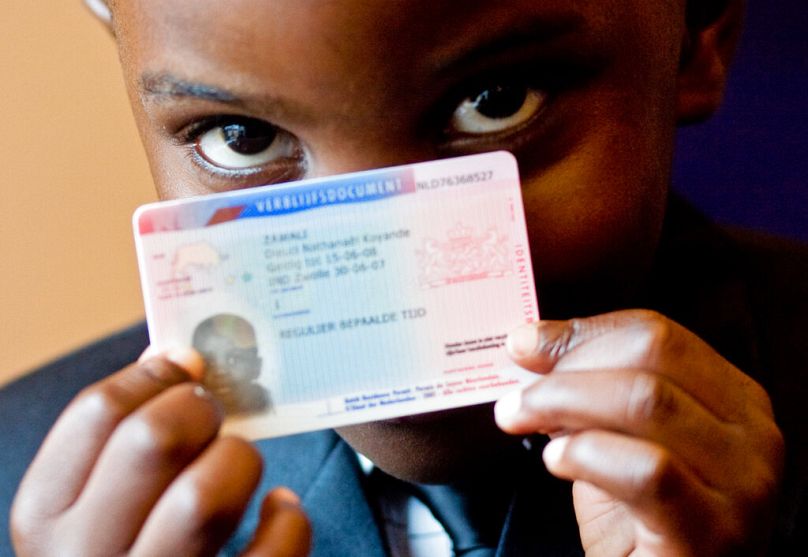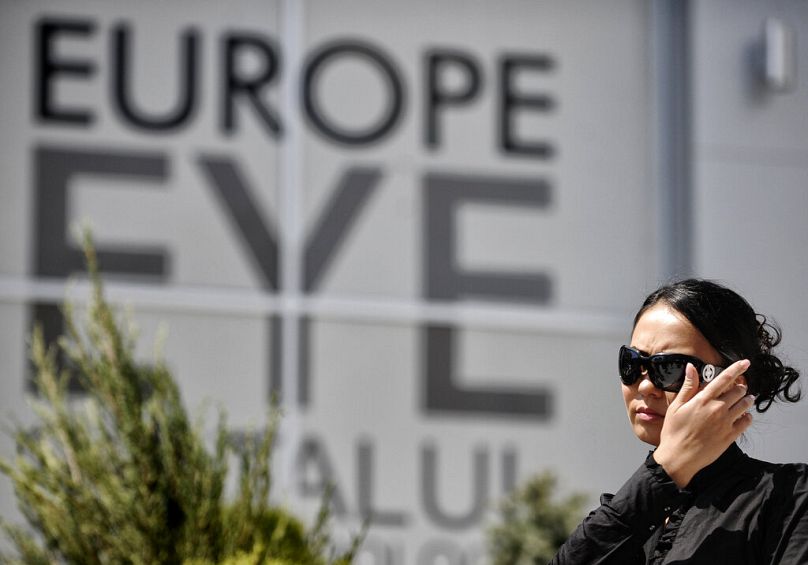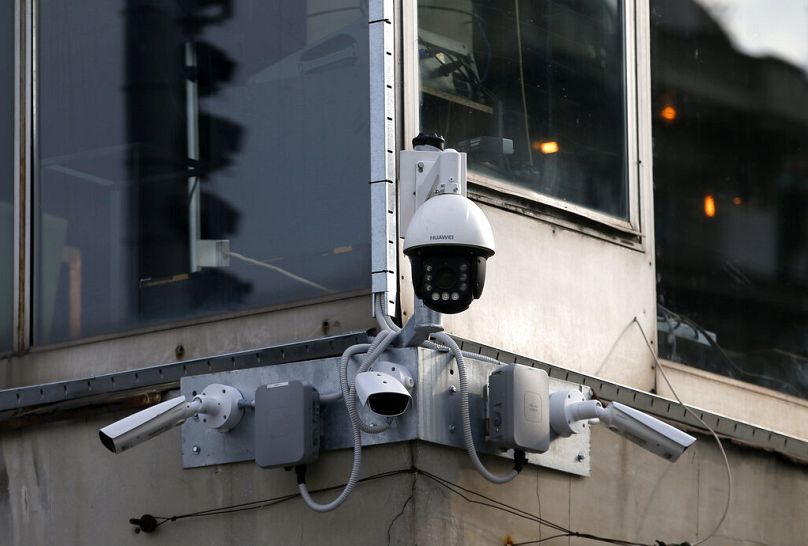Whilst civil rights activists have long called for an outright ban, certain EU lawmakers may see the AI Act as an opportunity to claim that they are doing the (human) right(s) thing — and actually doing the opposite, Ella Jakubowska writes.
In June 2023, the European Parliament made history when it voted in favour of a total ban on live facial recognition in public spaces.
 ADVERTISEMENT
ADVERTISEMENT
 ADVERTISEMENT
ADVERTISEMENT
Through the new artificial intelligence bill, the EU could stop companies and authorities from treating us all as walking barcodes. But pressure from EU governments threatens to transform this possibility into the stuff of George Orwell’s nightmares.
Since late summer 2023, EU governments and parliamentarians have strived to reach an agreement on the Artificial Intelligence (AI) Act. This landmark law has promised that the EU will become a world leader in balancing AI innovation with protection — but the reality is less optimistic.
EU lawmakers are debating throughout November about how much leeway to give police to use public facial recognition.
Despite these systems having been tied to human rights violations around the world, and recently condemned by Amnesty International for facilitating Israel’s system of oppression against Palestinians, the European Parliament’s commitment to a strong ban is at risk.
The commodification and abuse of our most sensitive data
In the last decade, information about every facet of our physical being — the faces, fingerprints, and eyes of practically every person worldwide — has become common currency.
This information — known as biometric data — is a mathematical representation of the most minute and intimate details and characteristics that make up who we are. From the vibrancy of human difference, we are collectively boiled down to a string of 1s and 0s.
Biometric data have been used in recent years to surveil and monitor people, from trying to suppress and scare pro-democracy protesters in Hong Kong and Russia to persecuting Black communities in the US.
Even seemingly mundane uses, like in national identity documents, have in fact turned out to be great enablers for systems which scan people’s faces and bodies without due cause — a move that amounts to biometric mass surveillance.
Whilst the EU presents itself as a beacon of democracy and human rights, it has of course not been immune to practices which amount to biometric mass surveillance.
Transport hubs in Germany and Belgium, protesters in Austria, people going about their day in the Czech Republic, people sleeping rough in Italy and many, many more have all been subjected to public facial recognition surveillance.
Most recently, France made its aspirations for biometric mass surveillance clear, passing a law to roll out automated surveillance systems for use at the upcoming Olympic and Paralympic games.
A wolf in sheep’s clothing
Human rights advocates have long argued that using people’s faces and bodies to identify and track them at scale already runs contrary to EU human rights and data protection law.
Whether in live mode or used retrospectively, notoriously unreliable and discriminatory public facial recognition infringes massively on our human rights and essential dignity.
But the use of such systems — often under vague claims of "public safety" — is widespread, and legal protections against them are patchy and applied inconsistently.
The AI surveillance industry has all but told lawmakers: “For national security reasons, we cannot disclose evidence that these systems work, but we can assure you that they do”. What’s worse is that lawmakers seem to be taking their word for it.
Whilst civil rights activists have long called for an outright ban, certain EU lawmakers may see the AI Act as an opportunity to claim that they are doing the (human) right(s) thing — and actually doing the opposite.
According to media reports from Brussels, despite previous commitments to outlaw biometric mass surveillance practices, the European Parliament is now considering “narrow” exceptions to a ban on the live recognition of faces and other human features.
Nothing but a full ban in the AI Act will do
But the crux of this issue is that you cannot allow just a little bit of biometric mass surveillance without opening the floodgates.
This is not hypothetical: using the purportedly "narrow" exceptions written into the draft AI Act by the EU’s executive arm, the government of Serbia has twice tried to legalise the roll-out of thousands of Huawei facial recognition-equipped cameras.
If the EU AI Act permits exceptions that would allow EU countries to make use of untargeted public facial recognition, it will not be long until we are fighting off biometric mass surveillance laws in all twenty-seven EU countries.
One of the grounds for use that is reportedly being considered as an exception to the ban is the search for people suspected or convicted of serious crimes. But there is simply no way to do this without scanning the features of everyone in a public space, which research has proven has a severe chilling effect on democracies.
There are also major questions about necessity. If there really is an urgent situation, is a risky and unreliable technology like facial recognition actually going to help?
Whilst the press in Brussels notes that the European Parliament would want safeguards to be added, there is little that these safeguards can do to stop people having to look over their shoulder everywhere they go. You cannot safeguard the violation of a fundamental human right.
Freedom or mass surveillance?
The EU is on the precipice of a huge achievement — an AI Act which truly puts people at its centre.
But if done poorly, we will instead find ourselves on the precipice of a law which tells the whole world that the EU prioritises the surveillance industry over people and communities.
Authorities will be able to use the exceptions to public facial recognition to justify the near-permanent use of these systems.
And the mass surveillance infrastructure — vast networks of public cameras and sensors propped up by powerful processors — will be ready and waiting for us at the press of a button.
There’s no need to smile for the camera any more — you’ll be captured whether you like it or not.
Ella Jakubowska is a Senior Policy Advisor at European Digital Rights (EDRi), a network collective of non-profit organisations, experts, advocates and academics working to defend and advance digital rights across the continent.
At Euronews, we believe all views matter. Contact us at view@euronews.com to send pitches or submissions and be part of the conversation.













